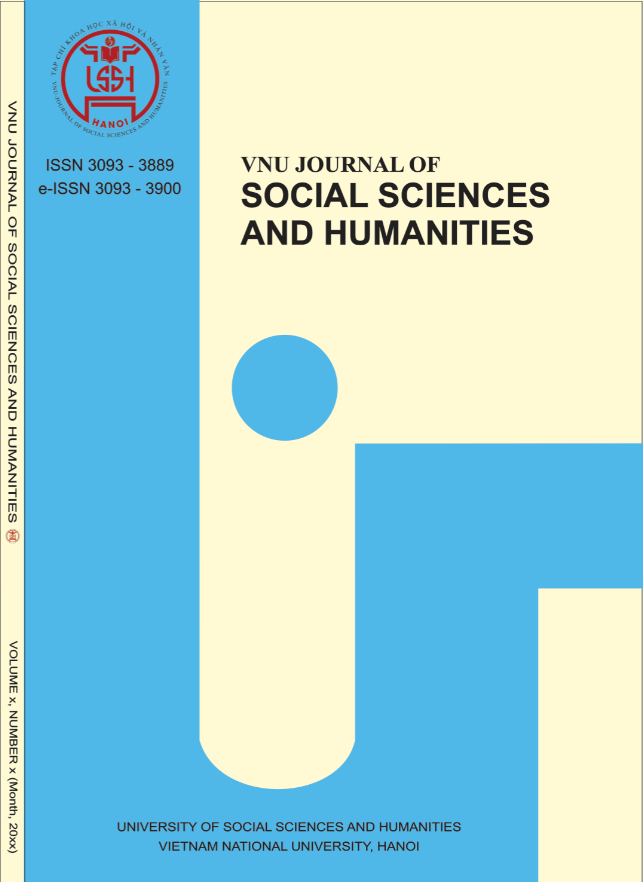First issue of the newly designed VNU Journal of Social Sciences and Humanities
Concept Note: Urban Planning in Vietnam and Beyond
Guest editor: Detlef Briesen
The renewed concept of the VNU Journal of Social Sciences and Humanities (VNU-JOSSH) envisages the publication of two issues per year, each with a thematic focus. The first focus we have chosen is urban and spatial planning, with a view to Vietnam, its neighbouring countries and also in a broader international comparison, as envisaged by the journal's concept. The starting point is that the rapid development of recent years has led to profound changes in spatial structures in Vietnam, as in many other countries in the wider region from India to Indonesia and China. Very dynamic economic, social and demographic changes have taken place, the problems of which have not always been mitigated by the instruments for organising and shaping societal space. Nevertheless, throughout the region, as in the global context, there is debate about a spatial order of society that is more adequate to human needs.
This issue of the journal takes up these debates and asks:
- Which issues play a greater role in the context of the respective planning discussions: transport and environmental issues, industrialisation and urbanisation, spatial justice, i.e. equal access to resources and services, socio-spatial segregation, population growth, heat management and climate adaptation, and more.
- Which urban and spatial planning concepts prevail in the respective countries? The following topics are of particular interest for this issue: smart cities, green transformation, urban renewal, traffic control and management, urban densification and de-densification, urban greening, and planning that thinks in regional contexts and thus does not end at the administrative boundaries of a city.
- What successes have been achieved in the respective urban planning contexts and by what means? Contributions that critically examine the numerous urban planning measures that have been implemented in terms of their success are encouraged. Papers that identify the factors that promote or hinder planning measures in the respective contexts are particularly welcome.
Contributions can be submitted at any time after the publication of this call for papers. The journal is not only welcoming submissions by urban planning scholars but also by researchers from other fields such as geography, history, urban administration and management, political sciences, etc. The editors of the journal will select up to six submissions based on the criteria specified on the journal's website.



